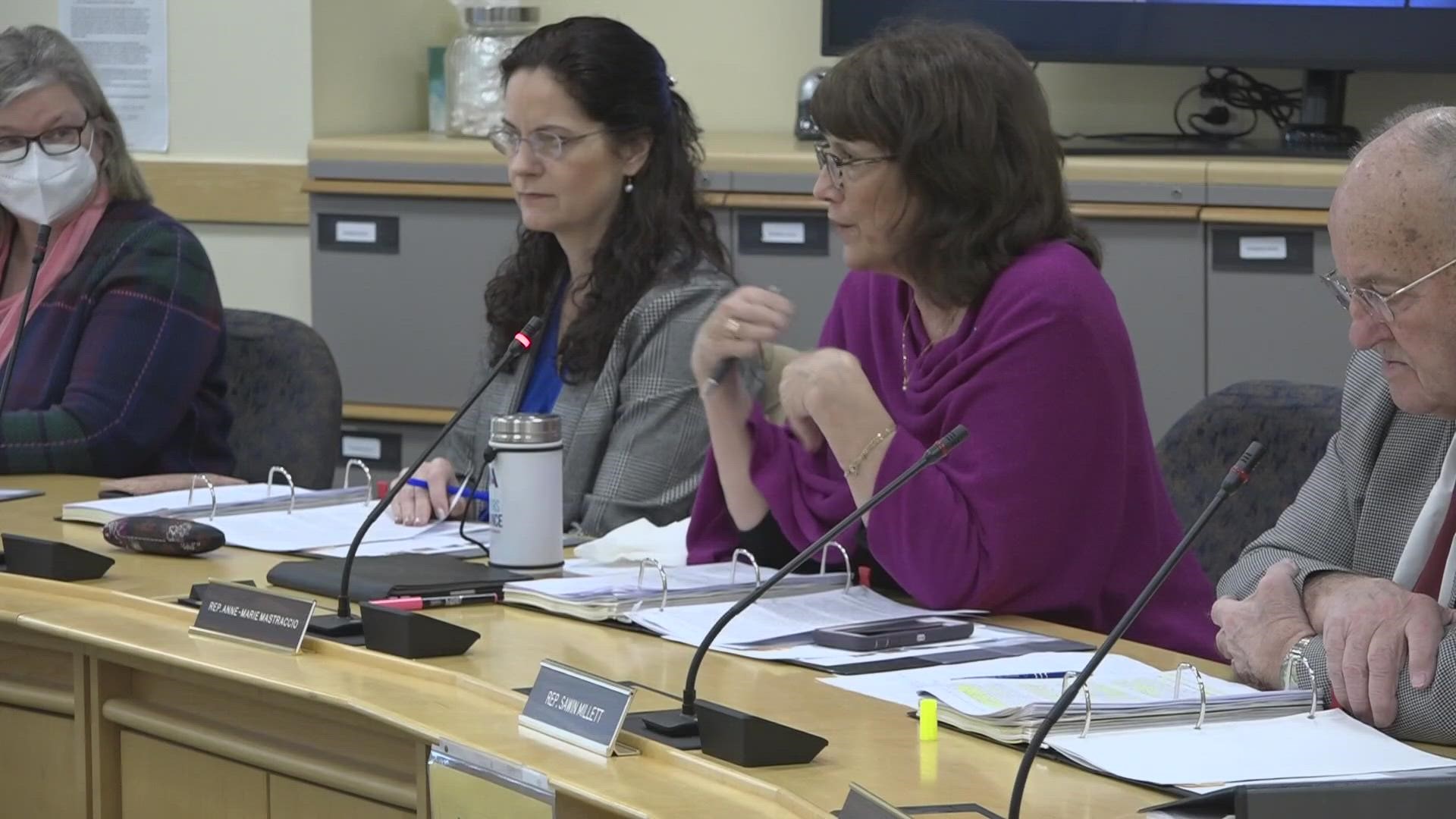AUGUSTA, Maine — The Maine Government Oversight Committee was presented the first report of four that was conducted by its nonpartisan Office of Program Evaluation and Government Accountability looking into the Department of Health and Human Services on Friday.
In September 2022, the GOC subpoenaed DHHS for its records regarding four child death cases that happened within weeks of each other in 2021. Those children were Hailey Goding, Maddox Williams, Jayden Harding, and Sylus Melvin. The parents of all four of those children have since been charged with either murder or manslaughter in connection to their deaths.
The GOC asked for the records because DHHS was involved with each family prior to the child's death.
The report presented Friday to the committee was in regard to 3-year-old Hailey Goding of Old Town. The medical examiner ruled Goding's cause of death as exposure to fentanyl. Goding was in the care of her mother, Hillary, at the time, who has since been sentenced to 19 years in prison for manslaughter.
"We know what happened, but how do we fix it?" Sen. Jeffrey Timberlake, R-Androscoggin, said.
The GOC asked for these reports to take a closer look at whether DHHS could or should have done more to protect Hailey and the other children's lives.
Peter Schleck, director of OPEGA, presented the report findings to the committee.
"In terms of the department's role, [DHHS] did what the process calls for," Schleck said.
OPEGA found the Office of Child and Family Services within DHHS investigated all leads and followed state law as best as possible, but the report did find two incidents that raised questions about the decisions the department made.
The first incident happened a year before Hailey's death. Hillary brought Hailey to the hospital after touching a piece of aluminum at a playground and started acting lethargic.
Hailey and Hillary tested positive for fentanyl at that time. DHHS reportedly stepped in and worked with Hillary to develop a short-term safety plan to ensure Hailey's safety. The department referred her to mental health and substance use treatment and drug screens as well. Hillary tested negative for all substances in her following three drug screens.
The report showed a lack of evidence in the first incident prevented OCFS from taking further action.
The second incident involved an anonymous report that Hillary pointed a gun at her own mother, but her mother did not support the allegation.
"Had that scenario been corroborated by the grandmother, the mother of Ms. Goding, that might've led to a different process from the department," Schleck said.
Following the presentation, the GOC asked Schleck numerous questions in regard to the report findings and asked for further clarification on some of the findings, some of which will be further looked into and revisited by OPEGA and DHHS in upcoming meetings.
"Was there any attempt to revisit the issue of whether she [Hailey] should stay with her mom?" Rep. Anne Maria Mastraccio, D-Sanford, asked.
"When I read this report, I don't know as if I could find anything that tells me where we went wrong. And we obviously went wrong, or we wouldn't have a child dead," Timberlake said.
OPEGA also outlined two areas in which DHHS needs improvement, including a central source for substance-related questions, and improved service availability.
Dr. Todd Landry, DHHS OCFS director, said his department agrees with the recommendations for improvement and is already making changes.
"This is a never-ending process in my view of continuously improving, learning from the cases that are successful as well as those that are not as successful," Landry said.
The GOC has not yet voted on whether to clear the state of wrongdoing in this case. The committee will meet again on March 10 for a public hearing. The report for Maddox Williams' case is expected to be presented to the GOC in April.
For the full report conducted by OPEGA on the Safety Decisions and Actions Taken in the Case of Hailey Goding, click here.

